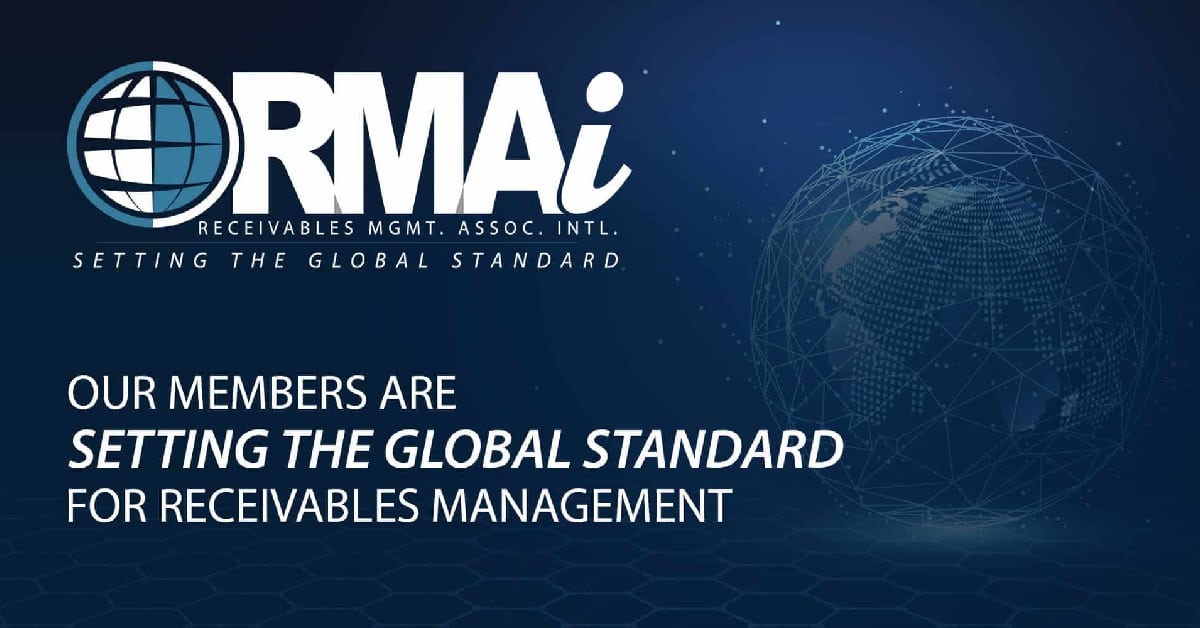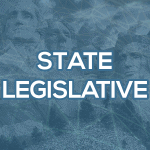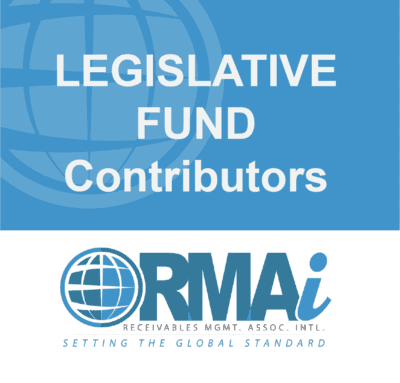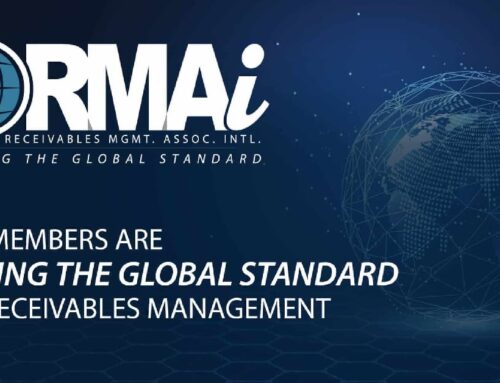
After an unprecedented fifteen elections, Kevin McCarthy (R-CA) was finally elected Speaker of the House of Representatives. With a slim Republican majority, Speaker McCarthy will have a difficult time governing the House. The extended Speaker selection process has also delayed the assignment of committee chairs and members. We anticipate the House Financial Services Committee will be chaired by Congressman Patrick McHenry (R-NC). Congresswoman Maxine Waters (D-CA) will be the ranking member. On the Senate side, Senator Sherrod Brown (D-Ohio) will continue to chair the Senate Banking Committee with Senator Tim Scott (R-SC) serving as the new ranking member. It is anticipated that with a clear Democratic majority in the US Senate, we will see more legislative activity coming out of Senate Banking in this new congressional session.
RMAI is closely watching the rulemaking plans from the CFPB. They have published their Fall 2022 agenda which outlines a robust rulemaking agenda. In particular, RMAI will be submitting comments on the proposed rule: Registry of Nonbank Covered Entities. Once the proposed rule is published in the Federal Register (as of today, it has not been published), the 60-day comment period will begin.
The 2023-2024 Congressional Session promises to be busy – RMAI has a strong team in place to defend, protect and promote the accounts receivables management industry.

January marks the start of the two-year state legislative cycle with newly elected officials taking office and new bills being introduced. Here are some recently introduced bills that might be of interest:
New York SB 171 – This bill would create a private right of action against originating creditors and debt collectors for a violation of the Debt Collection Procedures Act. Currently only the attorney general or a county district attorney can bring an action to restrain or prevent any violation of the article. A consumer could seek actual damages, punitive damages awarded by the court, and reasonable attorney’s fees. [RMAI will be advocating for amendments to this bill that would create a “right to cure” opportunity before suit can be filed. RMAI has a registered NY lobbyist.]
New York SB 1366 – This bill among other things would provide that: (1) patients be given financial assistance application forms by hospitals; (2) upon submission of an application, the patient is not liable for any bills until the hospital has rendered a decision on the application, including after the commencement of legal action or the obtaining of a default judgment; (3) patients below 200% federal poverty index (FPI) can only be charged a “nominal” payment; (4) patients from 200-400% FPI will be charged a sliding scale from “nominal” to 20% of the amount that would have been paid for the same services by Medicare; (5) patients from 400-600% FPI will be charged the amount that would have been paid for the same services by Medicare; (6) the hospital shall inform patients on how to file a complaint against the hospital or a debt collector that is contracted on behalf of the hospital regarding the patient’s bill; and (7) prohibits hospitals or their agents from pursuing wage garnishment or securing a lien. [RMAI will be consulting with our members that are directly impacted by the proposed language to determine an approach on this bill. RMAI has a registered NY lobbyist.]
Washington SB 5173 – This bill would update the state property exemption provisions. The most notable changes include: (1) increasing the auto exemption from $6,500 to $15,000; (2) increasing the tools of the trade exemption from $10,000 to $15,000; (3) an across the board doubling of the exemption amount for married couples; and (4) adding a cost-of-living adjustment. [RMAI is working with an industry coalition to fight this legislation based on recent adjustments to this section of law during the pandemic.]
RMAI monitors, tracks, and responds to legislative and regulatory activity in all 50 states as the need arises. Backed by RMAI’s State Legislative Committee and a team of state lobbyists, RMAI educates legislators and regulators about the industry and the negative impacts or unintended consequences a bill would have on businesses and consumers. If you have an interest in volunteering in RMAI’s grassroots advocacy efforts, please contact RMAI General Counsel David Reid at (916) 779-2492 or [email protected].

Tenth Circuit Affirms Dismissal of Hunstein-Type Claim
Shields v. Prof’l Bureau of Collections of Md., Inc., 55 F.4th 823 (10th Cir. 2022)
A debt collector sent three collection letters via a letter vendor to a consumer regarding outstanding student loan debt. The letters did not indicate the debt balance could increase due to interest and fees, and the consumer sued alleging the use of a letter vendor constituted an improper third-party disclosure and that the failure to notify that the balance could increase violated the FDCPA.
The trial court dismissed the consumer’s complaint because it found the consumer lacked a concrete injury necessary for standing and the consumer appealed.
On appeal, the consumer asserted that the debt collector’s third-party disclosure violated the FDCPA and caused injury. She primarily relied on a close relationship with the traditional tort of public disclosure of private facts. That tort occurs when a tortfeasor gives “publicity to a matter concerning the private life of another” and “the matter publicized is of a kind that (a) would be highly offensive to a reasonable person, and (b) is not of legitimate concern to the public.” “Publicity” means the information is conveyed “to the public at large, or to so many persons that the matter must be regarded as substantially certain to become one of public knowledge.”
However, the Tenth Circuit noted that the Eleventh Circuit recently rejected a similar argument in Hunstein v. Preferred Collection and Management Services, Inc. (Hunstein III), 48 F.4th 1236, 1240 (11th Cir. 2022) (en banc). There, the plaintiff sued after a debt collector used letter vendor to send a collection letter. The Eleventh Circuit determined that the consumer did not have standing because he failed to allege publicity and “without publicity, there is no invasion of privacy.” The Eleventh Circuit observed the difference between private and public disclosure “is qualitative, not quantitative.”
Like the Eleventh Circuit in Hunstein, the Tenth Circuit reasoned that the consumer here failed to allege anything close to the required publicity standard. She only alleged that the debt collector disclosed her debt to its mail vendor; not to the public at large or anyone likely to widely communicate the existence of her debt. The Tenth Circuit acknowledged that the consumer did not have to plead and prove the tort’s elements to prevail, but she did need to at least allege a similar harm.
The consumer also alleged that the debt collector violated the FDCPA by not informing her that the amount of the debt could increase. The consumer claimed that the omission caused her to be confused and believe her debt was not accruing interest. However, she never alleged the letters caused her to do or refrain from doing anything.
The Court held that the consumer’s mere confusion and misunderstanding were insufficient to confer standing, citing Pierre v. Midland Credit Mgmt., Inc., 29 F.4th 934, 939 (7th Cir. 2022). The court also opined that it would be unreasonable for a debtor in the consumer’s position to believe that her debt would not continue to accrue interest, absent a well-pleaded allegation to the contrary.
Accordingly, the Tenth Circuit concluded that the consumer did not plead any concrete tangible or intangible harms and, therefore, affirmed the decision of the trial court.
Ninth Circuit Holds Autodialer Must Generate and Dial Random or Sequential Phone Numbers
Brickman v. Meta Platforms, Inc., No. 21-16785, 2022 U.S. App. LEXIS 35286 (9th Cir. Dec. 21, 2022)
The U.S. Court of Appeals for the Ninth Circuit recently affirmed the trial court’s dismissal of a putative class action suit brought under the federal Telephone Consumer Protection Act because another panel of the Ninth Circuit had previously held that an autodialer must generate and dial random or sequential telephone numbers under the TCPA’s plain text.
The named plaintiff in the class action alleged that the defendant company violated the TCPA, 47 U.S.C. § 227, by sending unsolicited “Birthday Announcement” text messages to consumers’ cell phones because the messages were sent using an autodialer that used a “random or sequential number generator” (RSNG) to store and dial the telephone numbers of the consumers being texted. The plaintiff did not argue that the RSNG generated the consumers’ phone numbers, but instead that “the RSNG was used to determine the order in which the phone numbers were stored and dialed.”
The defendant disagreed with the plaintiff’s interpretation of the autodialer provision and argued that a TCPA-defined RSNG “must actually generate the phone numbers in the first instance.”
The TCPA generally bans calls made to a telephone if the call is generated by an “automated telephone dialing system,” commonly referred to as an “autodialer.” The statute defines an autodialer as a piece of equipment with the capacity “to store or produce telephone numbers to be called, using a random or sequential number generator,” and “to dial such numbers.”
The trial court dismissed the class action suit with prejudice, and the plaintiff appealed.
The question on appeal was whether a TCPA-defined autodialer must use an RSNG to generate the telephone numbers that are dialed.
During the Court’s deliberations, another panel of the Ninth Circuit decided Borden v. eFinancial, Ltd. Liab. Co., No. 21-35746, 2022 U.S. App. LEXIS 31613 (9th Cir. Nov. 16, 2022), which held that “an [autodialer] must generate and dial random or sequential telephone numbers under the TCPA’s plain text.” Therefore, the court here likewise concluded that there was no violation because the defendant did not use a TCPA-defined autodialer that randomly or sequentially generated the telephone numbers in question.
The plaintiff countered that Borden did not control the outcome because Borden addressed the “production” prong of §227(a)(1)(A), not the “storage” prong at issue here. But the Ninth Circuit observed that the Borden panel did not limit its holding to the “production” prong. Borden instead interpreted the definition of an autodialer in its entirety, finding that the text and context of the TCPA “make[] clear that the number in ‘number generator’ . . . means a telephone number,” regardless of whether the numbers are stored or produced.
Thus, the Ninth Circuit affirmed the judgment of the trial court.
9th Cir. Holds Companies Can Sue Under ATDS Provisions of TCPA, Mixed-Use Cell Phones Can Be ‘Residential’
Chennette v. Porch.Com, Inc., 50 F.4th 1217 (9th Cir. 2022)
The U.S. Court of Appeals for Ninth Circuit recently reversed a trial court’s judgment dismissing a federal Telephone Consumer Protection Act (“TCPA”) complaint brought by a group of home improvement contractors for lack of statutory standing.
In so ruling, the Ninth Circuit held that the contractor plaintiffs had statutory standing under Sections 227(b) and 227(c) of the TCPA because the statutory text includes not only “person[s]” but also “entit[ies]” and registered cell phones that are used for both personal and business purposes are presumptively “residential.”
The Ninth Circuit also held that the contractors alleged a concrete and particularized injury sufficient for Article III standing.
The TCPA prohibits calls using automatic telephone dialing systems (“ATDS”) to cell phones (47 U.S.C. § 227(b)), and telephone solicitations sent to residential telephone subscribers who have registered their phone numbers on the national do-not-call registry (47 U.S.C. § 227(c)). Both provisions provide private causes of action for damages and injunctive relief.
The complaint alleged that the website defendants’ use of an ATDS to call the contractors’ cell phones violated Section 227(b) and that the websites’ text messages to the contractors’ cell phones that were registered on the national do-not-call registry violated Section 227(c).
The website defendants moved to dismiss, contending among other things that the contractors lacked Article III and statutory standing. The trial court assumed that the contractors had Article III standing but held under the “zone of interests” test of Lexmark International, Inc. v. Static Control Components, Inc., 572 U.S. 118 (2014), that the contractors lacked statutory standing under the TCPA. The trial court dismissed the contractors’ complaint with prejudice and the contractors appealed.
On appeal, the websites argued that the contractors lacked Article III standing because the contractors were known to solicit business inquiries from potential customers and therefore did not suffer a concrete and particularized injury in receiving solicitations from the websites.
“[T]o satisfy Article III’s standing requirements, a plaintiff must show (1) it has suffered an ‘injury in fact’ that is (a) concrete and particularized and (b) actual or imminent, not conjectural or hypothetical; (2) the injury is fairly traceable to the challenged action of the defendant; and (3) it is likely, as opposed to merely speculative, that the injury will be redressed by a favorable decision.”
Furthermore, the Ninth Circuit wrote in Van Patten v. Vertical Fitness Grp., LLC that in enacting the TCPA, Congress “establishe[d] the substantive right to be free from certain types of phone calls and texts absent consumer consent . . . [and] identified unsolicited contact as a concrete harm.” 847 F.3d 1037, 1043 (9th Cir. 2017).
As explained in Van Patten, “an effective consent is one that relates to the same subject matter as is covered by the challenged calls or text messages.” Importantly, “providing a phone number in itself [does not mean] that the consumer has expressly consented to contact for any purpose whatsoever.” Instead, the scope of consent is “related to the reason [the plaintiff] gave his number in the first place.”
The Ninth Circuit noted that the contractors “alleged in their complaint that they received unsolicited, unconsented automated text messages from the websites on their cell phones. Even assuming that [the websites] acquired [the contractors’] phone numbers through publicly available online directories,” the Court held that they did not provide “prior express consent” as the Court construed that phrase in Van Patten.
Moreover, the Ninth Circuit concluded that the contractors’ harm was particularized because “the TCPA provides that even one unconsented message can violate the statute, and [the websites] provided no basis to disbelieve [the contractors’] allegation that each of them received at least one message. ‘A plaintiff alleging a violation under the TCPA ‘need not allege any additional harm beyond the one Congress has identified’ to establish Article III standing.”
Thus, the Ninth Circuit held that the contractors alleged a concrete and particularized injury sufficient for Article III standing.
The Ninth Circuit also concluded that the contractors had statutory standing under Section 227(b) of the TCPA. The websites argued that the TCPA protects only individuals from unwanted calls, and that the contractors “fell outside of the TCPA’s zone of interest.” However, because the statutory text includes not only “person[s]” but also “entit[ies],” the Court reasoned that all of the contractors had standing to sue under Section 227(b) of the TCPA.
The contractors who placed their cell phone numbers on the national do-not-call registry also alleged additional claims under Section 227(c). Noting that Section 227(c) and its implementing regulations apply only to “residential” telephone subscribers, the websites argued that because the contractors used their cell phones both for personal calls and for calls associated with their home improvement businesses, they did not qualify as residential subscribers.
The Ninth Circuit noted that, in the view of the Federal Communications Commission’s 2003 TCPA Order, a subscriber’s use of a residential phone in connection with a home-based business does not necessarily take an otherwise residential subscriber outside the protection of Section 227(c):
As a practical matter, since determining whether any particular wireless subscriber is a “residential subscriber” may be more fact-intensive than making the same determination for a wireline subscriber, we will presume wireless subscribers who ask to be put on the national do-not-call list to be “residential subscribers.” Such a presumption, however, may require a complaining wireless subscriber to provide further proof of the validity of that presumption should we need to take enforcement action.
Accordingly, in the absence of FCC guidance on the precise question of when a mixed-use phone ceases to become a residential phone or a business phone, the Court held that the contractors’ registered cell phones that are used for both personal and business purposes are presumptively “residential” within the meaning of Section 227(c). At the motion to dismiss stage, the Court therefore concluded that these contractors had standing to sue under Section 227(c).
Thus, the Court concluded the contractors had standing to sue under § 227(c) at this stage but noted that after discovery the websites could argue that the presumption had been rebutted.
The Court therefore reversed the trial court’s ruling and remanded the case to the trial court for proceedings consistent its opinion.

Attend the Legislative Fund Reception at the 2023 Annual Conference
On Monday, February 6, 2023, RMAI will be hosting its Legislative Fund Reception from 4:30-5:30pm to show appreciation to our Legislative Fund donors. This event is open to any attendee who has donated, and you may donate at the door. We will be providing tasty beverages and giving out awards for our Bronze Level and higher donors.
Donate an Item for the Annual Conference Silent Auction
RMAI is collecting donations for 2023 Annual Conference Silent Auction, sponsored by Kino Financial. Whether you are a regular donor or a first-time donor that wants to participate in the silent auction, we invite you to complete the Donor Form to add your item to our Auction Catalog. Head to our 2023 Annual Conference silent auction website for more details.

Learn About Licensing
Register now for our January 25th webinar on licensing. Our presenters will tackle topics such as remote workforce, CA licensing, what’s coming up & effective in 2023, and more. Click here for more information on our live and recorded webinars
Suggest a Webinar Topic or Presentation for 2023
We are planning monthly educational webinars for 2023 and always look for fresh topics and ideas for our webinar programming. If you have a webinar you would like to present on or a topic that is timely for the receivables management industry, you can Propose an Educational Presentation and our Education Committee will review your submission.
Sponsor a Webinar in 2023
Sponsor an RMAI webinar and accomplish some targeted marketing to webinar attendees. Sponsoring a webinar is a great way to get you and your brand in front our members and share a little bit about your company. When you sponsor a webinar, you receive a variety of benefits including:
- Logo placement on the live webinar marketing flyer, weekly e-blasts and social media posts distributed to over 1,500 industry professionals and made available on the RMAI website
- Logo placement on the RMAI website for the live webinar
- Continued logo placement for one (1) year on the RMAI website for the recorded webinar
- Final attendee list with full contact information pre-and post-webinar
- Sponsor introduction by RMAI host
- Option to give sponsor pitch (2-3 minutes) at beginning of live webinar
- Choice of providing your own customized sponsor slide OR logo placement on RMAI sponsor slide in PPT Presentation to complement sponsor introduction and sponsor pitch
Contact Shannon Parod at [email protected] or (916) 482-2590 with any questions.

In-Person Credits Available at the Annual Conference
At the Annual Conference in February, earn up to 16 education credits for your Receivables Management Certification Program application or renewal. As a reminder, Chief Compliance Officers of a Certified Receivables Business (CRB) or Certified Receivables Vendor (CRV) are required to you earn a minimum of 12 in-person education credits.
Feel free to review the agenda for the Annual Conference to plan out your education. We hope to see you at the Certification 101 and Beyond education session on Tuesday afternoon.
A credit form will be available at the Annual Conference for you to self-report your education credits. Then turn your form in to any RMAI staff member when you are done. We keep these credit forms until you submit your application for new or renewal certification.
CRCP Application (apply for individual certification)
CRB Application (for debt buyers, collection agencies and collection law firms
CRV Application (for brokers, defense law firms, vendors/Affiliate Members)
View all certified businesses and vendors.
View all certified individuals.
View educational requirements for certified individuals.
For questions about certification, contact RMAI at (916) 482-2462 or email [email protected].

Resolve to Renew Your RMAI Membership in 2023!
Thank you to those who have already renewed their membership for 2023! We look forward to continuing to provide you with ongoing valuable networking opportunities, timely education, helpful resources, and comprehensive and robust state and federal advocacy! If you have not yet renewed your membership, we encourage you to do so, to continue to enjoy the benefits of being a part of RMAI – including discounted rates for Annual Conference!
To renew your membership, please login here. (An account is required to pay online. If you have not yet created one, please click here.) You can also contact RMAI at 916-482-2462 or [email protected] with your credit card authorization.
Serve on an RMAI Committee, Task Force and/or Working Group
Primary Contacts and Additional Membership Representatives are eligible to serve on RMAI committees, task forces and/or working groups. The annual Committee Interest Survey will be distributed to Primary Contacts and Additional Membership Representatives next month. Watch for the survey and respond if you want us to know your participation interests.
Add a Representative to Your Membership | $75/year
Do you have an employee or coworker who is interested in joining a committee or is pursuing or already earned individual certification? If so, now is a great time for them to enroll them as an Additional Membership Representative on your company’s membership! In addition to receiving information critical to certified individuals, Additional Membership Representatives also receive access to the following members-only communications and privileges:
- Elgible to Serve on an RMAI Committee
- Member Directory
- Member Alerts
- RMAI Insights (Fall print and digital magazine)
- RMAI Digital Dispatch (Spring digital publication)
- RMAI Update (monthly e-newsletter)
Welcome New Members
Reliable Auto Finance | MI
Mode Global | TX
EXLService Holdings Inc | NY
Simons Agency, Inc | NY
Patenaude & Felix, APC| CA
LendingPoint | GA
Vital Recovery Services, LLC| GA
Sedric AI | NY
Triverity, Inc. | MN
SSID Financial Ltd. | St. Johns
Fleetcor Technologies, Inc | GA
SmileDirectClub, LLC | TN
Nissan Motor Acceptance Company | TX
Collaborationroom.AI | WA
FDR Alliance LLC | GA
Receive Revenue Recovery | IN
DCM Services | MN
Grassy Sprain Group, Inc I FL
For a complete list of RMAI members, login to check out the Member Directory.

RMAI’s leadership cultivates relationships within the receivables management industry to expand business opportunities for members.
RMAI 2023 Annual Conference | February 6-9, 2023
RMAI 2023 Executive Summit | August 1-3, 2023
The RMAI office will be closed during Annual Conference. If you need to contact us re: Conference matters during this time, reach out by email or call our cell phones. Non-Conference related requests may have a delayed response.

Thank you to our January 2022 – January 12, 2023 Legislative Fund Contributors!
Diamond $25,000
Cavalry Investments, LLC
Crown Asset Management, LLC
Financial Recovery Services, Inc.
First Financial Portfolio Services, LLC (FFAM360)
Midland Credit Management
Portfolio Recovery Associates, LLC
Resurgent Holdings, LLC
Titanium $15,000
National Credit Adjusters, LLC
Platinum $10,000
Blitt and Gaines, P.C.
Cascade Capital, LLC
InvestiNet, LLC
Second Round, LP
Unifund CCR LLC
Gold $7,500
Miller and Steeno, P.C.
Pressler, Felt and Warshaw, LLP
Rausch Sturm, LLP
Superlative RM
Silver $5,000
AscensionPoint Recovery Services, LLC
CKS Financial
Corporate Advisory Solutions, LLC
Digital Recognition Network
FMA Alliance, Ltd
Garnet Capital Advisors
Halsted Financial Services, LLC
Klima, Peters, & Daly, P.A.
National Loan Exchange
Pharus Funding, LLC
Provana, LLC
Spring Oaks Capital, LLC
T & I Enterprises, LLC
Tromberg, Morris & Poulin, PLLC
Velo Law Office
Bronze $2,500
Absolute Resolutions Corp.
Couch Lambert
DebtNext Software, LLC
Ragan & Ragan
RAzOR Capital, LLC
Resurgence Capital, LLC
Security Credit Services, LLC
Stillman Law Office
Weltman, Weinberg & Reis Co., L.P.A.
Brass $1,000
Action Collection Agencies, Inc.
AKCP LLC
Aldridge Pite Haan, LLP
Andreu, Palma, Lavin & Solis, PLLC
Arbeit
Arko Consulting LLC
Barron & Newburger, P.C.
Bayview Solutions, LLC
Bread Financial
Butler & Associates, P.A.
Call Center Services International
Capio
CCMR3
Cedar Holdings International, Inc. DBA Cedar Financial
Commercial Credit Group Inc
Commercial Funding Inc.
Complete Credit Solutions, Inc.
Convergence Acquisitions, LLC
Cornerstone Support, Inc.
CSS Impact!
D & A Services, LLC
Dobberstein Law Firm, LLC
Epicenter Technologies Pvt. Ltd.
Equabli
EverChain, LLC
FLOCK Specialty Finance
Genesis Recovery Services
Gordon, Aylworth & Tami, P.C.
Guglielmo & Associates, PLLC
Harvest Strategy Group, Inc.
Hunt & Henriques
Invenio Financial, a Phillips & Cohen Associates company
Investment Retrievers, Inc.
Jefferson Capital Systems, LLC
Kirschenbaum & Phillips, P.C.
Kota Business Solutions, LLC
Levy & Associates, LLC
Lockhart, Morris & Montgomery, Inc.
London & London
Mandarich Law Group LLP
MauriceWutscher LLP
Maxwell & Graves Solutions, LLC
Metacorp, LLC
Nelson & Kennard
Mountain Peak Law Group, PC
Portnoy Schneck, LLC
Quall Cardot, LLP
Quantum3 Group, LLC
PCI Group Inc.
Phin Solutions, LLC
RevSpring
Scott & Associates, PC
Sequium Asset Solutions, LLC
SimpleCertifiedMail.com
Skit.ai
Slovin & Associates
Stone, Higgs & Drexler
Synergetic Communications, Inc.
The Cadle Company
Tobin & Marohn
TrueAccord
US Mortgage Resolution, LLC
USASF Servicing
Venable LLP
VeriFacts, Inc.
Vertican Technologies, Inc.
Other
Alliance Credit Services, Inc.
ARM Compliance Business Solutions
Atlas Acquisitions
Ballard Spahr, LLP
Business and Professional Collection Service, Inc.
CMS Services
Coastal Law Firm. APLC
Complete Credit Solutions, Inc.
Converging Capital, LLC
Convoke, Inc.
Credit Management Corporation
David Reid
Delev & Associates, LLC
Fein, Such, Kahn & Shepard, P.C.
First Solutions Debt Management, LLC
G. Reynolds Sims & Associates, P.C.
Gaskell & Giovannini, LLC
Goldberg and Oriel
Hinshaw & Culbertson
International Debt Buying Consultants, LLC
Keith D. Weiner & Associates Co., LPA
Kelly Knepper -Stephens
Kino Financial Co., LLC
Lockhart, Morris & Montgomery, Inc.
Malone Frost Martin PLLC
Monarch Recovery Management, Inc.
National Debt Holdings, LLC
Nationwide Recovery Systems
Poser Investments, Inc.
Premier Forty Financial, LLC
Provana, LLC
ProVest LLC
Red Target, LLC dba SCJ Financial Services
Robinson, Hoover & Fudge, PLLC
SAM, Inc. – Solutions for Account Management
Simmonds & Narita, LLC
Sonnek & Goldblatt, Ltd.
State Collection Services, Inc.
Stone Creek Financial Inc.
Suttell & Hammer
Tate & Kirlin
The Oakes Law Firm, LLC
Troy Capital, LLC
United Acquisitions, LLC
Vargo & Janson, P.C.
Velocity Portfolio Group, Inc.
Venable LLP
VoApps














